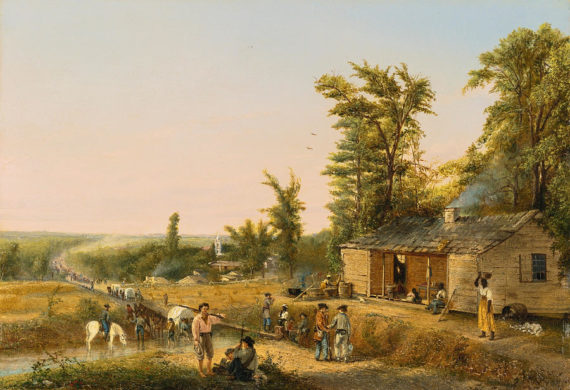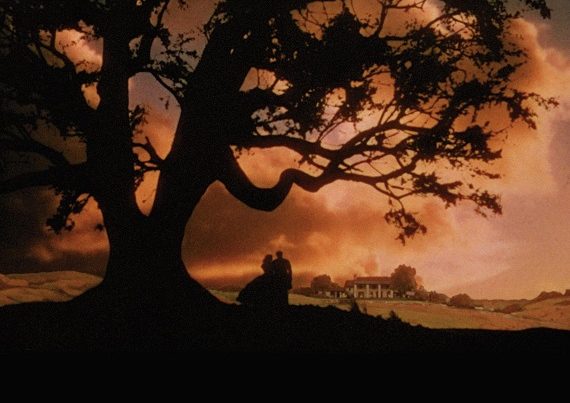
Editor’s Note: The Abbeville Institute does not endorse or support the views of Alexander Dugin on race, religion, or government, and Mr. Garlington offers his philosophical positions on identity in the broad concept of the term.
The Russian philosopher Alexander Dugin lists three kinds of identity in his book Eurasian Mission – diffused, extreme, and deep. The diffused identity is vague and unconscious so it contributes little to a person’s or a society’s way of viewing himself or itself or the world (Eurasian Mission: An Introduction to Neo-Eurasianism, Arktos, U.K., 2014, p. 116). It resembles the mindset of Andrew Lytle’s ‘momentary man’, who is aware only of the concerns and pleasures of the present hour.
The extreme identity ‘is an arbitrary and artificial creation of some rational formula that pretends to express and manifest the diffused identity in the intellectual realm. Here the identity becomes an ideology, a conceptual framework, or a theory’ (Ibid.). This should sound disturbingly familiar to Southerners, as it describes precisely the Yankee ideology of ‘Americanism’, of America as a proposition nation. Accordingly, it equates ideological speculations with the essence of a people, which can only lead to the obscuring and/or disfiguring of the real identity of that people (Ibid.).
The deep identity, however, is different. It is the true self:
‘Deep identity is an organic, existential, basic identity that lies below diffused identity, giving it its content, meaning and structure. . . . It is not a superstructure that is constructed above diffused identity (as extreme identity) but an infrastructure that is beneath diffused identity, giving it reality, sense, and inner harmony. Deep identity is what causes a people to be what it is. It is the essence of the people, something that transcends the collectivity in its actual state. . . . The people is not what exists at the present time. Its language, culture, tradition, gestures, and psychological features don’t appear in the present, they come from the past and move toward the future through the present moment. An actually existing people is not a people as such but only a particular moment of it, and only a segment of it. The people includes those who are dead and those of its children who have yet to be born. It is a kind of music that can be perceived as such only if we remember the previous note and anticipate the next one. The deep identity is the whole that plays out in both time and space. Deep identity is people as existence’ (p. 117).
Now we have reached something the South can recognize, an identity that embraces past, present, and future all at once. But has the South truly uncovered and developed her deep identity to the fullest extent? To that we would have to say No, for the deep identity of the South is intimately tied to the past of her English, African, Celtic, and Spanish and French forebears, and to their good and healthy traditions–both Christian and pre-Christian. But the extreme identity of Yankee Americanism forced upon her (along with her own misguided pursuit at times of oversized profits from cash crops, mineral extraction, etc.) has bled those memories and customs from the veins of Southrons, leaving them with only the faintest notions of what it means to be a Christian people with quick and lively traditions that go back through untold generations.
All that notwithstanding, we may yet be glad, for there are still records of how Dixie’s ancestors lived. One of those great monuments of folklore that the South can draw from was compiled by the Scotsman Alexander Carmichael (1832-1912): the Carmina Gadelica, a collection of poems, stories, songs, practices, and so on from across Scotland in which one may experience the true depth and power and grandeur that comes from standing face to face with the soul of a people.
In so standing before her forefathers and mothers of Scotland, the South will see more clearly how she must live in order to attain a more complete formation of her own deep identity.
It is quite clear throughout the Carmina that being a Christian folk means that every act is consecrated by prayer to God. Remembrance of God and His saints and angels is in-woven into everything. Everything:
All the moments of the day, and putting out the fire at night.
From a blessing for the planting of the seed, to a blessing for the milk cow, and one for the hunt.
It is readily seen in the foregoing prayers and blessings that the past is very much alive in the present: The holy men and women (and angels) of hundreds of years ago are appealed to just as one asks a boon of one’s flesh-and-blood neighbor today. Indeed, a day is set aside each week, Thursday, to honor the great St Columba of Iona (not just once a year as for many other saints; his main feast day is June 9th), and many acts are bound up with it.
And the same spirit is present in Scottish story-telling as well. The heroes, deeds, and sayings of the forefathers are not forgotten but are transmitted from the elders to the bairns:
‘Gaelic oral literature was widely diffused, greatly abundant, and excellent in quality–in the opinion of scholars, unsurpassed by anything similar in the ancient classics of Greece or Rome.
‘Many causes contributed towards these attainments–the crofting system, the social customs, and the evening ‘ceilidh.’ In a crofting community the people work in unison in the field during the day, and discuss together in the house at night. This meeting is called ‘ceilidh’–a word that throbs the heart of the Highlander wherever he be. The ‘ceilidh’ is a literary entertainment where stories and tales, poems and ballads, are rehearsed and recited, and songs are sung, conundrums are put, proverbs are quoted, and many other literary matters are related and discussed’ (Carmichael, ‘Introduction’, Carmina Gadelica).
This returns us to the transcendent aspect of the deep identity that Mr Dugin writes of in Eurasian Mission: ‘This is transcendence: people being simultaneously immanent and present in every other person that belongs to the same people’ (p. 117). This very real presence of past generations in the hearts of the present members of the Scottish ethnos is plainly evident. It is not so with the New South. She has room in her heart for only the newest and the latest, the exotic and the foreign. Cultivating the deep identity means repenting of all that and filling the heart with remembrance of God and His holy ones, of our forefathers and their deeds and wisdom, of the long pageant of history that stretches out before us, of ways to hand all this on to our children.
Paper-thin individualistic piety toward an ill-defined deity (think Maren Morris’s ‘My Church’); saccharine sentimentalism afforded to distorted, perverted versions of the nuclear family; fidelity to flimsy political slogans and ideologies: These are among Post-Modernity’s laughable substitutes for the deep identity. But no people, the South included, will last for very long resting on such feeble foundations.






